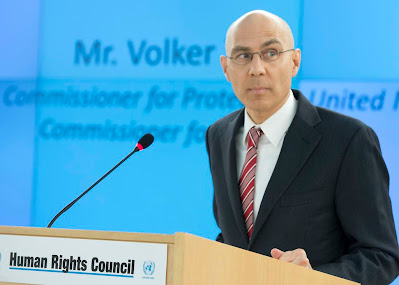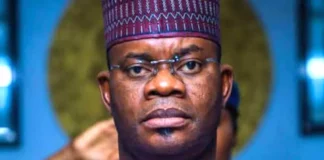Nearly half of the population is mired in extreme poverty (living on less than $US2.15 a day), and millions are reliant on humanitarian assistance.
GENEVA, Switzerland, August 18, 2023/ — UN Human Rights Chief Volker Türk today expressed grave concerns for the people of Niger who have been forced to endure even more misery following last month’s military coup, calling on the generals to immediately restore constitutional order.
“Niger is one of the poorest countries in the world, extremely vulnerable to climate change. The people have already had been through so much hardship over the years,” Türk said.
“Now the very people who they elected to build a pathway to end their destitution have been removed by force against the constitutional order and detained by the coup leaders. They must be released at once, and democracy restored.”
Nearly half of the population is mired in extreme poverty (living on less than $US2.15 a day), and millions are reliant on humanitarian assistance. Since the coup, their situation has worsened. The landlocked country’s borders have been shut, trade has come to a standstill, there have been severe power cuts and food prices have risen.
The High Commissioner called for full and free access for humanitarian assistance, including goods, flights and personnel, to allow critical food, medical and other relief supplies into the country.
Türk also raised concerns about the announced decision by coup leaders to prosecute President Mohamed Bazoum and others working with him for high treason. “This decision is not only politically motivated against a democratically elected President but has no legal basis as the normal functioning of democratic institutions have been cast aside,” he said.
A clampdown on civic space, including allegations of intimidation against journalists, bans on international media outlets and other restrictions impacting freedom of expression and public assembly, is also very worrying, the High Commissioner added.
Türk said the recent pattern of unconstitutional changes in government by military forces in West Africa – the Niger putsch is the sixth in the region in the past three years – is deeply troubling, and the costs are always borne by the local population. “The very notion of freedoms in Niger is at stake,” said the High Commissioner, noting Bazoum’s victory in 2021 was the first democratic transition in the country’s coup-prone history. “Generals cannot take it upon themselves to defy – at a whim – the will of the people. Rule-by-gun has no place in today’s world.”
SOURCE
Office of the UN High Commissioner for Human Rights (OHCHR)













